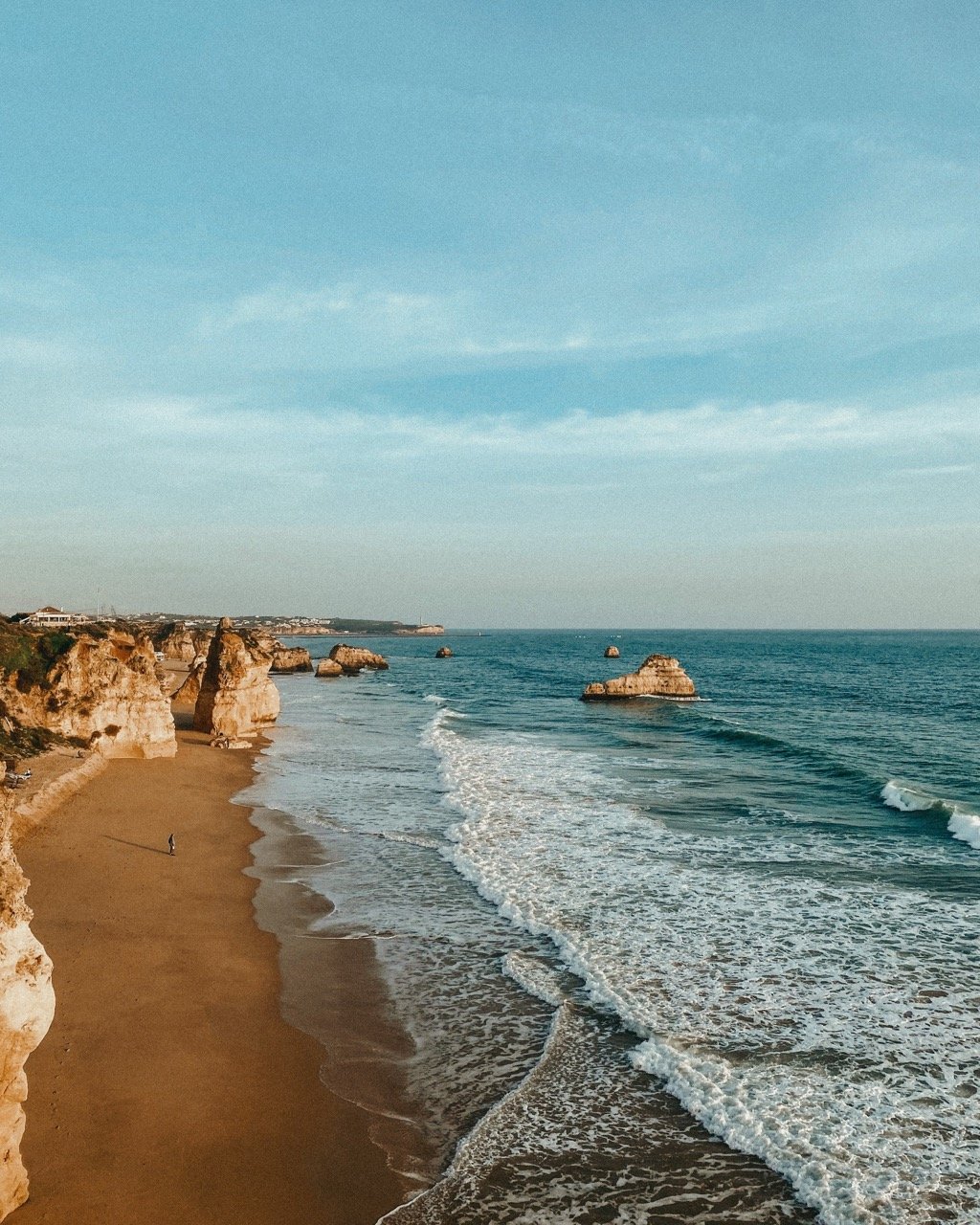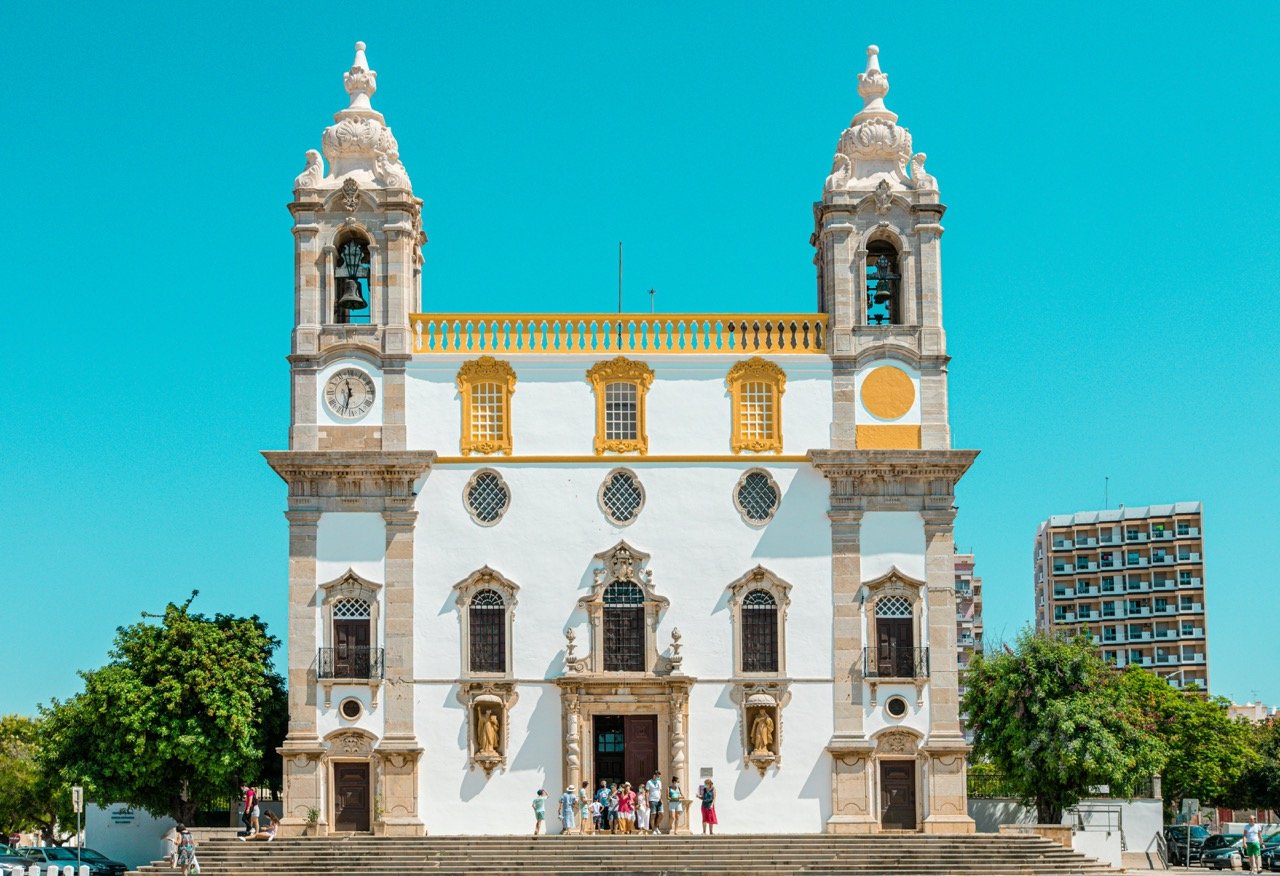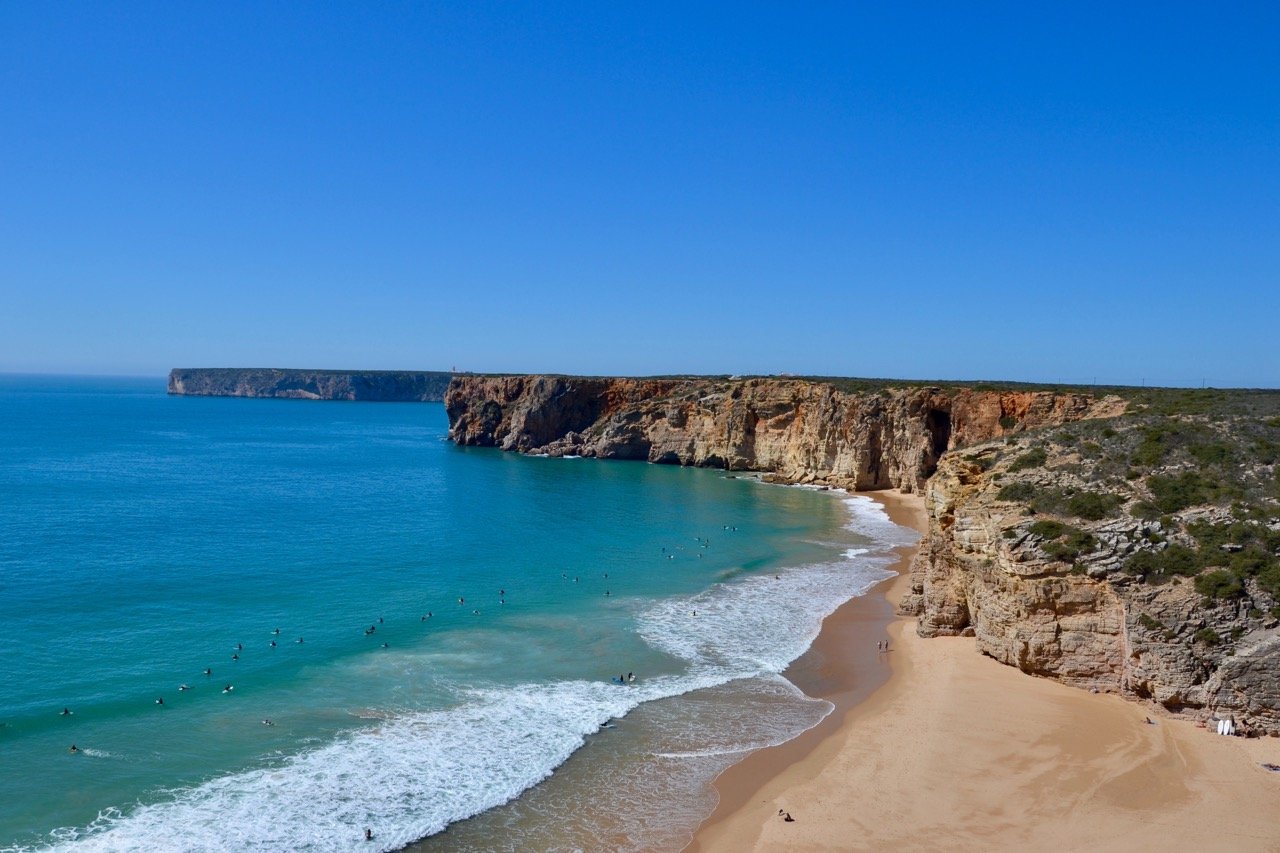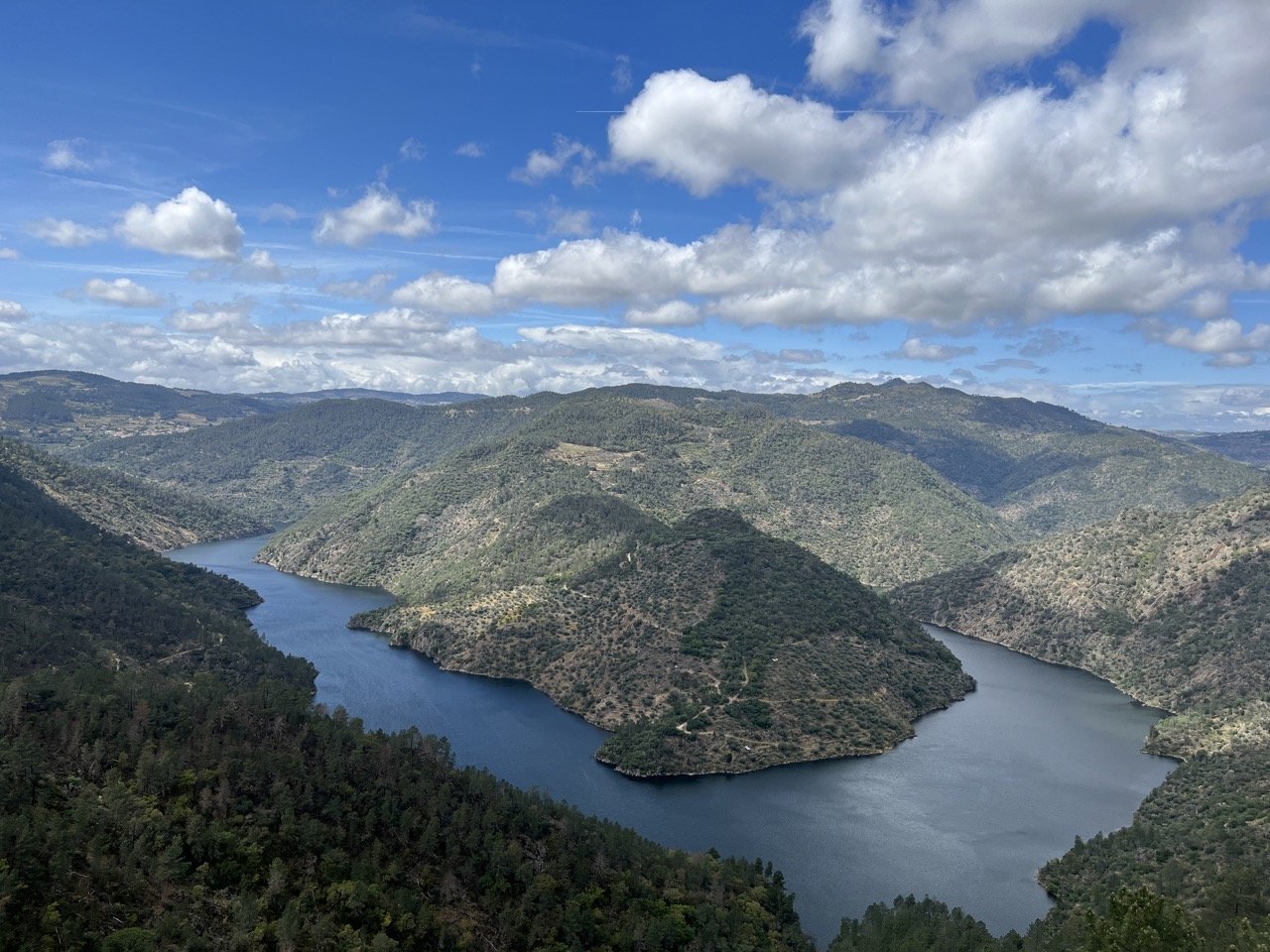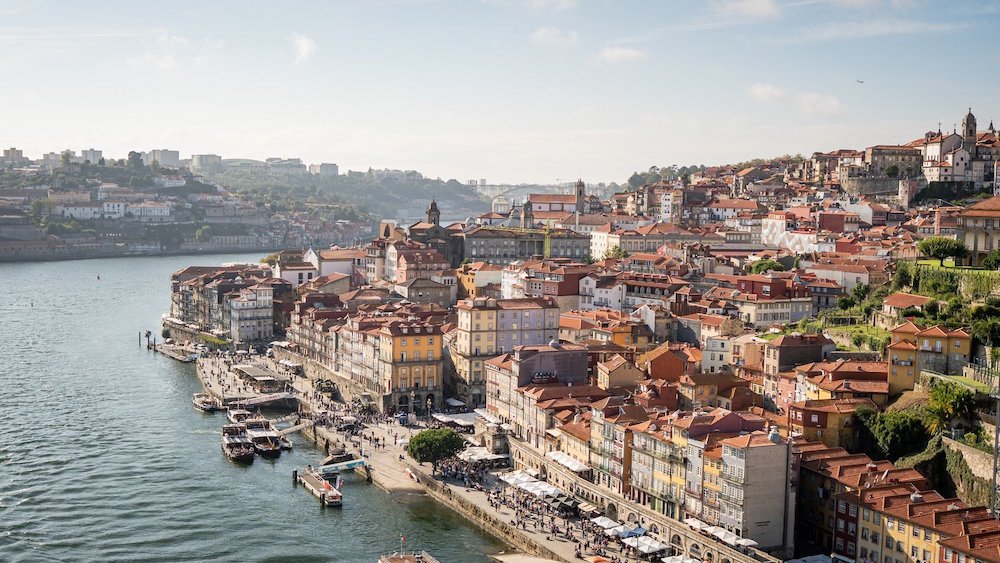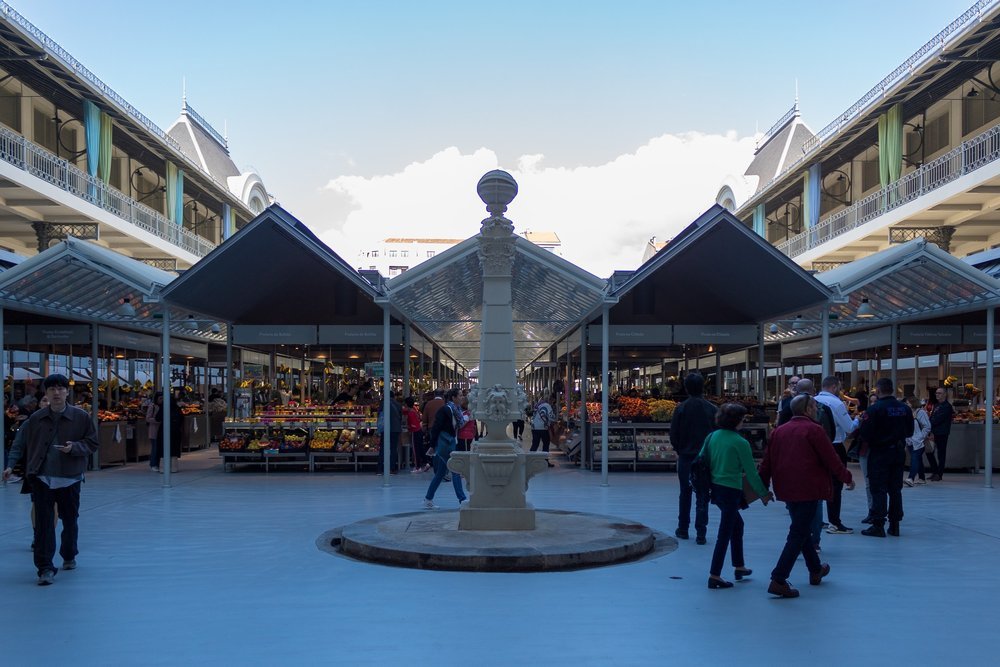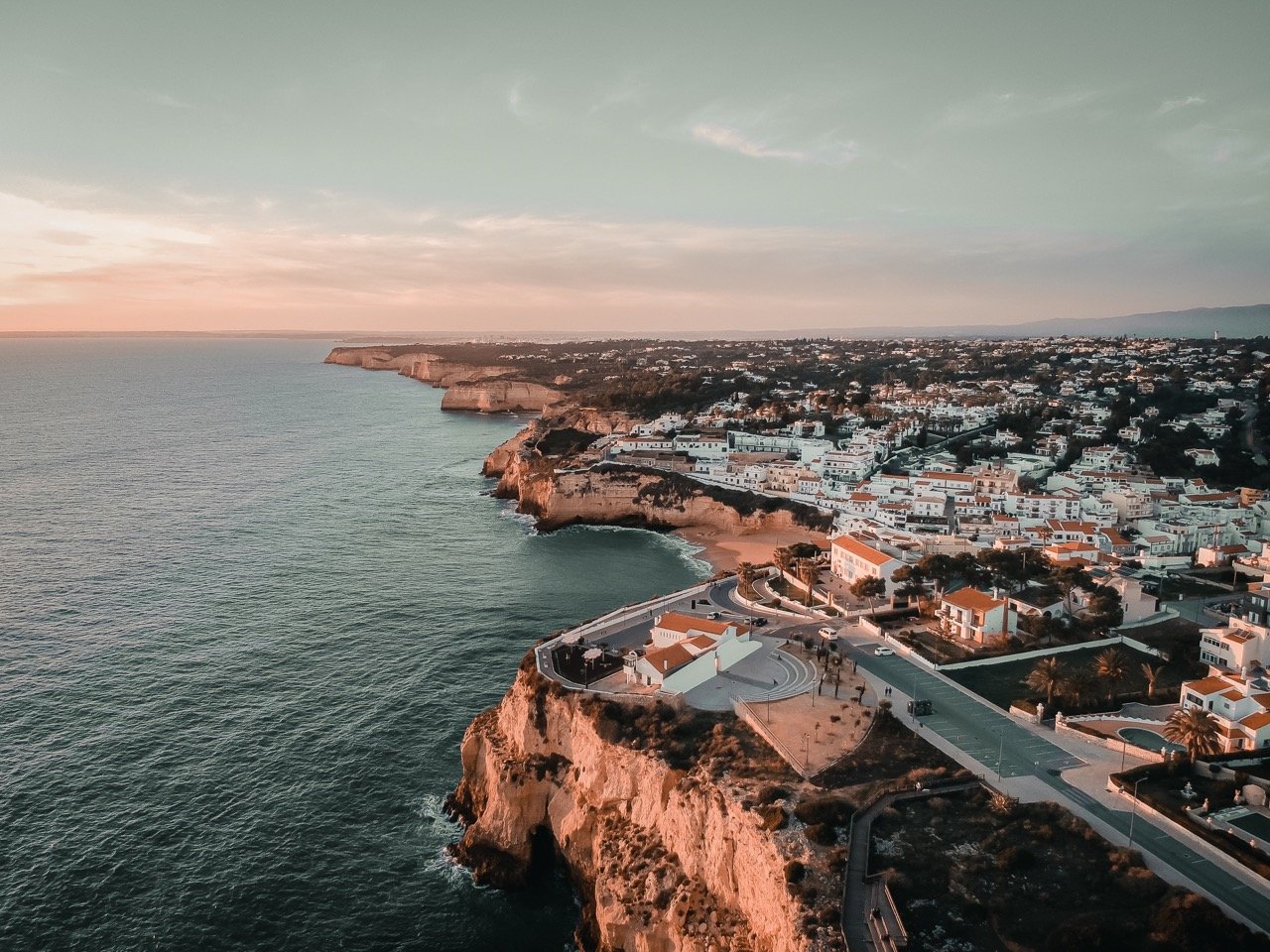
Portugal Travel Guide
You've undoubtedly seen photos of the Algarve's golden beaches, Lisbon's red-tile roofs, and the sloping vineyards of the Douro Valley. And they are indeed glorious places.
But the great surprise of any visit to Portugal is almost always found in those sleepy villages you happen across, in impromptu stops at charmingly unpretentious fishing towns, and in cities you debated leaving out of your itinerary altogether. In these places, you'll get a look at Portugal without the tourist gloss and with all her people's charm.
A country that sent brave explorers around the globe for centuries, the pleasure of Portugal is that there's still so much to discover at home.
Bem-vindo! Welcome!
Portugal Trip Planning with Local Experts
You’ve got a lot of info to look through on this page, but we couldn’t include everything you need to know.
So, if you could use some help planning your itinerary and deciding where to go, how long to spend, the best activities, ways to connect with locals, and lots more, connect with one of our Portugal Local Experts for a one-on-one travel consultation!
See a few of our Local Experts below!
Weather & when to visit
For most people, the best time of year for a visit to Portugal is either the spring or the fall. Both periods offer the benefits of good weather, fewer crowds, and better prices.
While a summer visit is always lovely, temperatures in some parts of the country become oppressively hot and both crowds and prices are at their peaks. If your main goal is to hit the beach, a summer visit makes sense, but everyone else should stick to fall or spring.
Visiting in Spring and Fall
Between April and May, and in September and October, the weather throughout Portugal is pleasant with warm (but not overly hot) days with lots of sunshine and long daylight hours. It's the ideal time of year for sightseeing and outdoors activities. Early fall is almost always warm enough to go to the beach everywhere in the country and even spring, especially by mid-May, has plenty of beach day opportunities.
Adding to their appeal, both seasons also represent shoulder season, meaning you'll find fewer crowds in the cities and sights and you'll get better prices for hotels and car rentals. However, to be clear, both spring and fall are busy times of year for tourism, so you should not expect to come here and be the only tourist around.
Visiting in summer
June, July, and August are peak season in Portugal and it will be busy and crowded almost everywhere you go. This is when all of Europe and North America are on summer vacation, so you'll be competing with Portuguese locals on holiday, visiting Europeans, and people from everywhere else. The country's main cities and the beaches of the Algarve become absolutely packed over the summer, hotels have limited availability, and prices skyrocket.
Temperatures in the center and south of the country will regularly be in the 90s (and rising into the 100s - Fahrenheit) over the summer, so it's not a time of year that we recommend for sightseeing or outdoors activities.
If you're coming for a beach trip and are prepared to put up with the crowds or if you want to explore the wonderful parks and mountainous villages of (cooler) Northern Portugal, it can be a wonderful time to be here. For sightseeing and road tripping, other times of year are typically better.
Visiting in winter
Winter can actually be a nice time to visit Portugal, depending on where you go and what you're hoping to do.
While the north of the country is cold, rainy, and foggy throughout the winter, the Alentejo, Algarve, and island of Madeira usually have mild temperatures and mostly sunny days. With temperatures often hovering from 60-70 Fahrenheit (around 20ºC) it can actually be a really nice time to be in those areas.
The Algarve's golf courses - and the appeal of hotel prices discounted by as much as 70% - are a major winter draw.
Regions of Portugal
Photo: Peter Fitzgerald, (WT-shared) Shaund, Rei-artur, Joan M. Borràs, Voll, SelfieCity, CC BY-SA 4.0, via Wikimedia Commons
Officially divided into 18 districts and 2 autonomous island regions, for travelers it makes sense to simply look at Portugal through the lens of its 7 informal regions. 5 of these regions lie on the mainland, while 2 - Madeira and the Azores - are islands quite a ways off into the Atlantic.
Heading from north to south, the 5 mainland regions are Northern Portugal, Central Portugal, the Lisbon Metropolitan Area, the Alentejo, and finally, the Algarve. Offshore, near the northern tip of Africa, are the archipelagos of the Azores and Madeira archipelagos.
Within these larger regions you also have smaller "sub-regions” like the Douro Valley and Trás-os-Montes in the north, the Serra da Estrela in the center, and the Costa Vicentina in the south.
Portugal's 7 Regions - Northern Portugal - Central Portugal - Alentejo - Algarve - Madeira - Douro Valley
City guides
Portugal is small and its only truly large city is Lisbon. Beyond this, you'll find a few historic medium-sized cities in the north of the country (like Porto and Braga), and then mostly a smattering of lovely, little cities and large towns throughout the rest of the country.
We can't cover them all, but we've written about one or two!
Braga - Coimbra - Évora - Faro - Funchal - Guimarães - Lagos - Lisbon - Loulé - Portimão - Porto - Tavira
Itineraries
Because Portugal is so small, you can have a great trip even if you have as little as a week to spend here. Our main cities, Lisbon and Porto, are each worth at least 2-3 days, but the many smaller cities and towns can be easily visited in a day, or even combined with visits to other places. Since distances are small (and public transport very good), this means that you can see a lot with limited time.
Below, you'll find a mix of countrywide, regional, and city itineraries. They by no means include everything there is to see and do in these places, but they give you a good base to work from as your plan your trip. Or… you can just follow them to a tee!
2 days in Lisbon - 3 days in Lisbon - 3 days in Porto - 10 day Portugal itinerary - 7 day Algarve itinerary - 7 day North Portugal itinerary
Where to stay: hotels & accommodation
When it comes to accommodation, you'll be spoiled for choice in Portugal. All over the country you'll find an excellent selection of hotels, B&Bs, short-term apartments, and hostels. Rates are still good when compared to other countries in Western Europe, but prices have risen quite steeply in the last decade. Portugal is no longer the budget destination that it once was.
One important thing to keep in mind is that space for new construction in cities is limited and renovating historic buildings is very expensive. This means that if you like modern hotels, you'll need to stay in slightly removed neighborhoods of the larger cities or prepare to shell out a decent chunk of change for an updated hotel in the historic centers.
Food & drink
Portuguese food justifiably does not receive the attention of cuisines like French and Italian. Being honest, this isn't a country you come to for food tourism. But that doesn't mean that it's bad. Quite the opposite, in fact - it's good! It's just not iconic or terribly exciting.
Portuguese cuisine is tasty, but basic. You have plenty of good soups and stews, but typical meals include a piece of meat or fish, some sort of a starch (rice or potatoes usually), and a vegetable, always with plenty of olive oil. While admittedly a bit boring, the lack of sauces and flavoring is in part because the ingredients are high quality; they don't need to be covered up by other flavors. This is especially true for fish dishes.
All that Atlantic coastline and a long tradition of seafaring and fishing mean that seafood lovers will be very happy here. The fish is always fresh, well prepared, and cheap! And for anyone who likes a glass of wine or two, the vineyards of the Alentejo and Douro produce some absolutely fantastic nectars to accompany it.
While the food is pretty good everywhere, the Alentejo is regarded as having the best (and most distinct) regional cuisine.
Where to eat in Lisbon - Where to eat in Porto - Food & dining in Madeira
More Portugal travel ideas
How to plan a trip to Portugal - Guide to Peneda-Gerês Park - Hidden gem towns in the Algarve - Best day trips from Lisbon - 40 beautiful places to visit
Private Guided Tours in Portugal
Unique experiences with veteran local guides
















